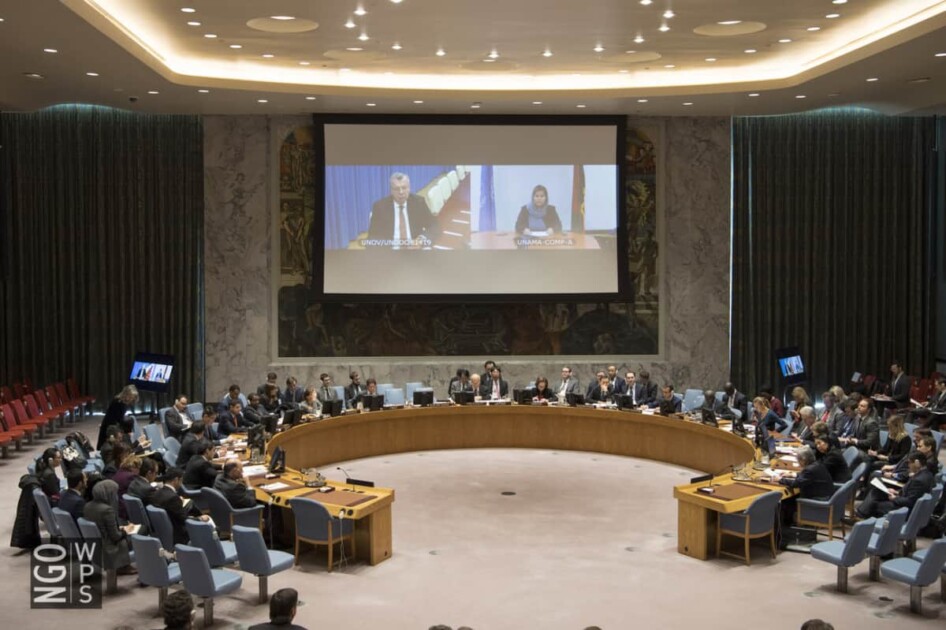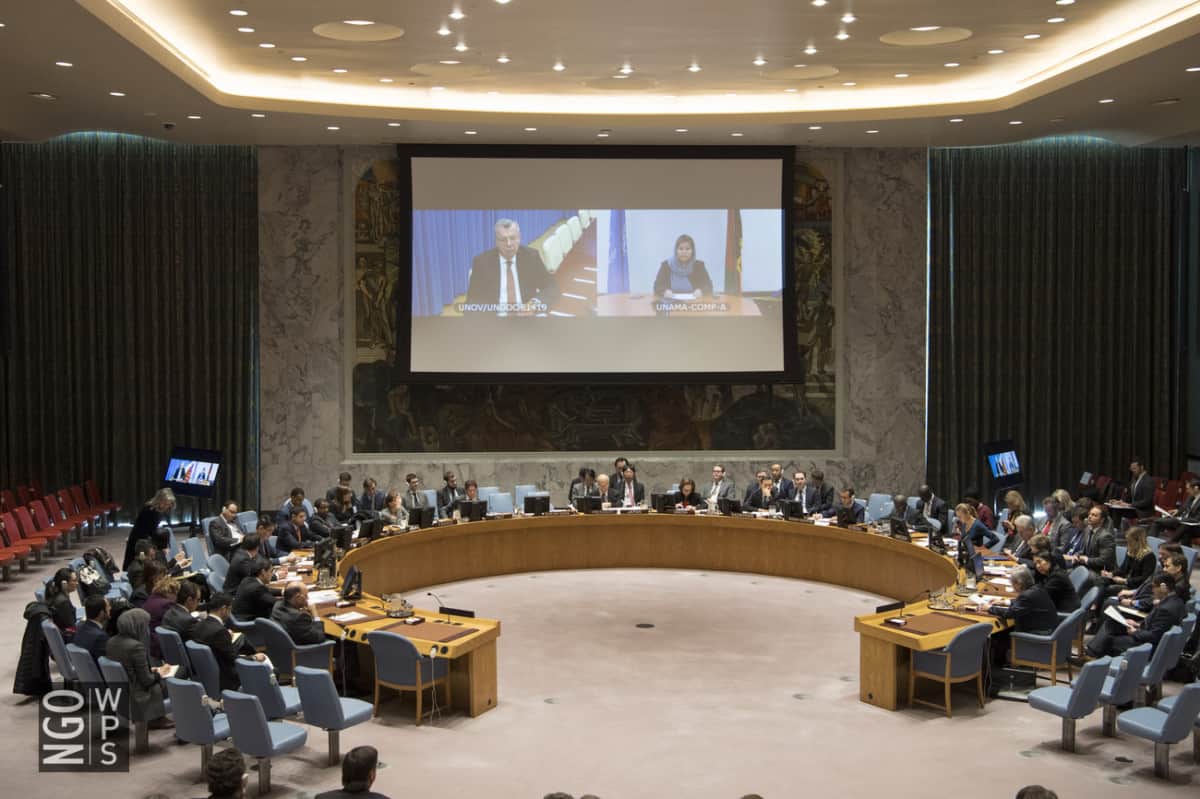Democratic Republic of the Congo
Women in the Democratic Republic of Congo continue to face widespread sexual violence, disease, and displacement in conflict situations arising from clashes between dozens of armed groups. Often, sexual violence and rape are used as terror tactics and weapons of war, and despite the ratification of the Convention on the Elimination of All Forms of Discrimination against Women (CEDAW) and the Women’s Platform for the Peace, Security and Cooperation Framework, women are still largely underrepresented in peacebuilding efforts. Additionally, women activists face rape as a form of torture by government actors who disagree with their political activity. The United Nations Organization Stabilization Mission in the DRC (MONUSCO) aims to provide protection for civilians, including reducing the threat of armed groups perpetrating sexual and gender-based violence, monitoring and reporting on sexual violence and ensuring women’s participation in stabilization and national political dialogue.
Democratic Republic of the Congo
Women in the Democratic Republic of the Congo continue to face widespread sexual violence, disease, and displacement in conflict situations arising from clashes between dozens of armed groups. Often, sexual violence and rape are used as terror tactics and weapons of war, and despite the ratification of the Convention on the Elimination of All Forms of Discrimination against Women (CEDAW), and the Women’s Platform for the Peace, Security and Cooperation Framework, women are still largely underrepresented in peacebuilding efforts.
Additionally, women activists face rape as a form of torture by government actors who disagree with their political activity. The United Nations Organization Stabilization Mission in the DRC (MONUSCO) aims to provide protection for civilians, including reducing the threat of armed groups perpetrating sexual and gender-based violence, monitoring and reporting on sexual violence and ensuring women’s participation in stabilization and national political dialogue.
Current and Past Recommendations to the UN Security Council (Monthly Action Points)
Given discussions in the Council regarding potential modification of MONUSCO, and the recently signed peace agreement, any discussions the Council holds on the situation and anydecisions the Council takes on DRC must ensure they place women’s rights at their core. As discussions about the potential intervention brigade move forward, it is critical that measures be in place to mitigate the probable increase in displacement, retaliatory attacks by armed groups, and sexual violence. The ongoing impunity for violations of human rights, particularly women’s human rights, in the country continues to be a scourge that undermines all efforts to bring lasting peace to the country and the region. In addition, the continuing barriers to women’s substantive engagement in peace processes are an indicator of the lack of inclusivity and transparency. The Security Council must ensure its effort truly supports the people of DRC, including by supporting effective and fully-resourced comprehensive approaches to combatting sexual violence in conflict; ensuring full support for women’s substantive engagement in political decision-making around security, specifically in displacement settings in North Kivu; supporting women’s emergency access to basic health and psychosocial services, and women’s access to livelihood opportunities; and that security actors act to ensure women’s protection and human rights, including in the areas around camps and spontaneous sites in North Kivu.
Relevant Resources











